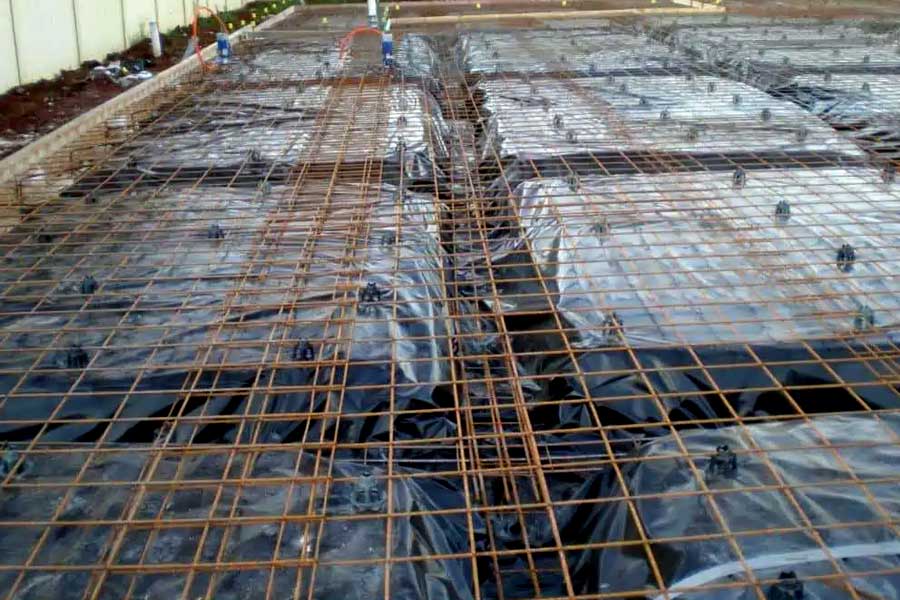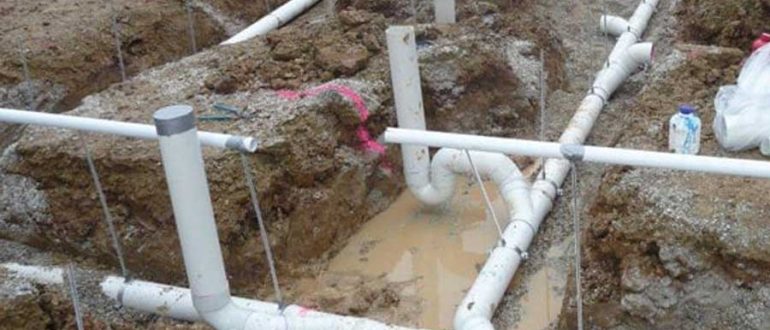If you are a Melbourne homeowner, you might be wondering whether water pipes run under your concrete slab and what happens if they start leaking. The short answer is yes, water lines often run beneath the slab in many Australian homes, particularly in properties built on concrete foundations. But what does this mean for you, and how can you detect and fix a slab leak before it causes major damage? Let us break it all down.
Why Are Water Pipes Installed Under the Slab?

In many Melbourne homes, especially those built from the mid-20th century onwards, plumbing lines are embedded within or beneath the concrete slab. This construction method was popular because it saved space, reduced exposure to temperature fluctuations, and simplified the initial building process. However, while this setup can be efficient, it also means that if a pipe bursts or develops a leak, the problem is hidden under layers of concrete, making detection and repairs more complicated.
Signs You Might Have a Slab Leak
How do you know if there is a water leak detection under your slab? Here are the most common warning signs:
- Unexplained increase in water bills – A sudden spike could indicate water escaping from a damaged pipe.
- Damp or warm spots on floors – Moisture seeping through may cause patches that feel wet or unusually warm.
- Mould or mildew growth – Excess moisture under the slab can lead to mould appearing on walls or floors.
- Cracks in walls or flooring – Shifting soil due to water leakage can cause structural damage.
- Sounds of running water – If you hear water when no taps are on, there may be a hidden leak.
How Professionals Detect Slab Leaks in Melbourne
Since the pipes are buried under concrete, finding a leak is not something you can do with a quick glance. Melbourne plumbers use advanced slab leak detection methods, including:
- Acoustic leak detection – Specialised listening devices pick up the sound of water escaping from pipes.
- Infrared thermography – Thermal cameras detect temperature changes caused by moisture under the slab.
- Ground penetrating radar – This non-invasive method maps out pipes and identifies leaks without excavation.
- Moisture metres – These tools measure dampness levels in concrete to pinpoint leaks.
Repair Options for Slab Leaks
Once a leak is detected, the next step is fixing it with minimal disruption. Here are the most common repair methods used in Melbourne:
- Trenchless pipe lining – A resin-coated liner is inserted into the damaged pipe, creating a new seal without digging.
- Pipe rerouting – New pipes are installed above the slab, bypassing the damaged section.
- Spot repair – If the leak is small, plumbers may excavate just that section for repairs.
- Full pipe replacement – In severe cases, the entire line may need replacing.
Preventing Future Slab Leaks
While some slab leaks are unavoidable due to ageing pipes or soil movement, you can take steps to reduce risks:
- Monitor water pressure – High pressure strains pipes, increasing the chance of bursts.
- Schedule regular inspections – Early detection can save thousands in repairs.
- Install leak detectors – Smart sensors can alert you to moisture before major damage occurs.
Final Thoughts
If you suspect a slab leak, do not ignore it. Left unchecked, water damage can weaken your home’s foundation, lead to mould growth, and result in sky-high water bills. The good news is Melbourne has expert plumbers who specialise in concrete slab leak detection and repairs, using cutting-edge technology to minimise disruption. Whether you need an inspection or urgent repairs, acting fast can save you from costly structural damage down the line.
Still unsure if your home has a slab leak? Contact a local Melbourne leak detection specialist today for a thorough assessment.

